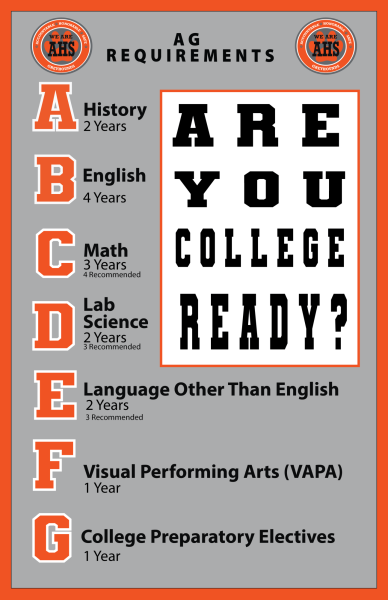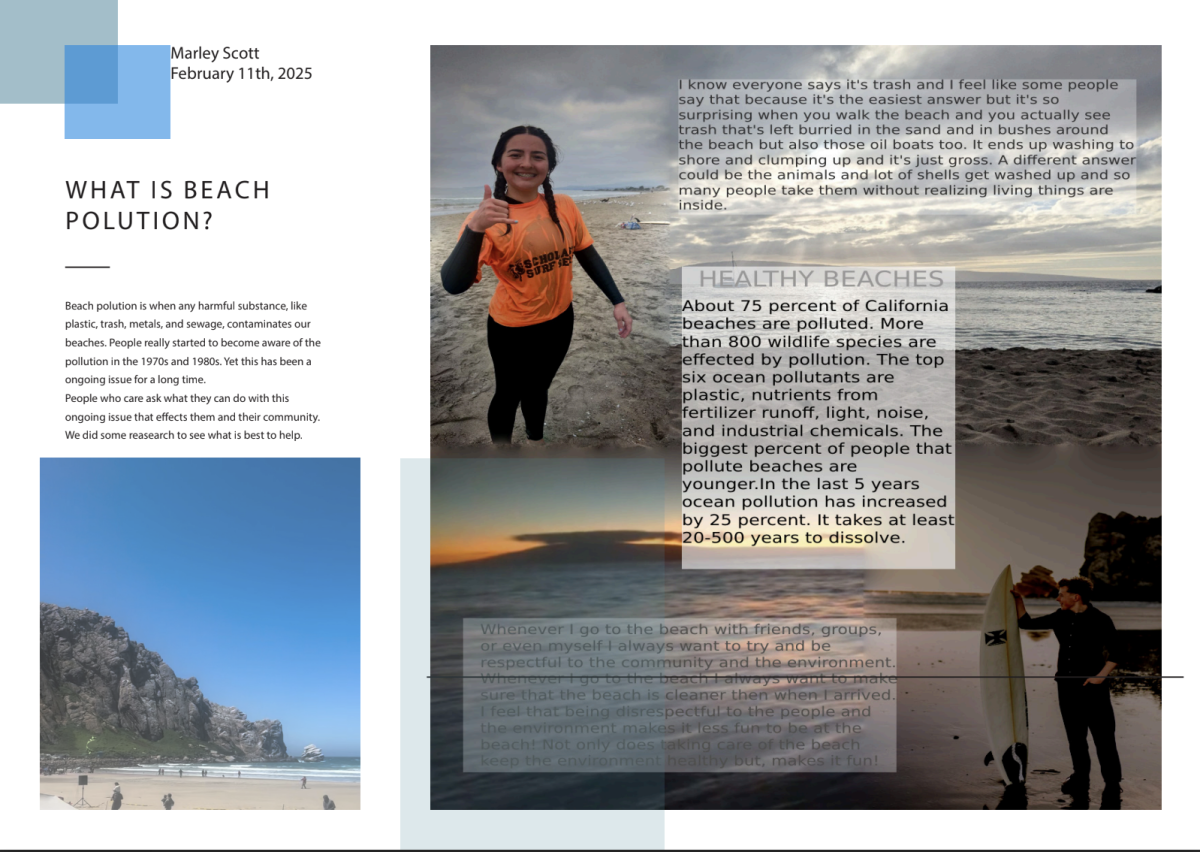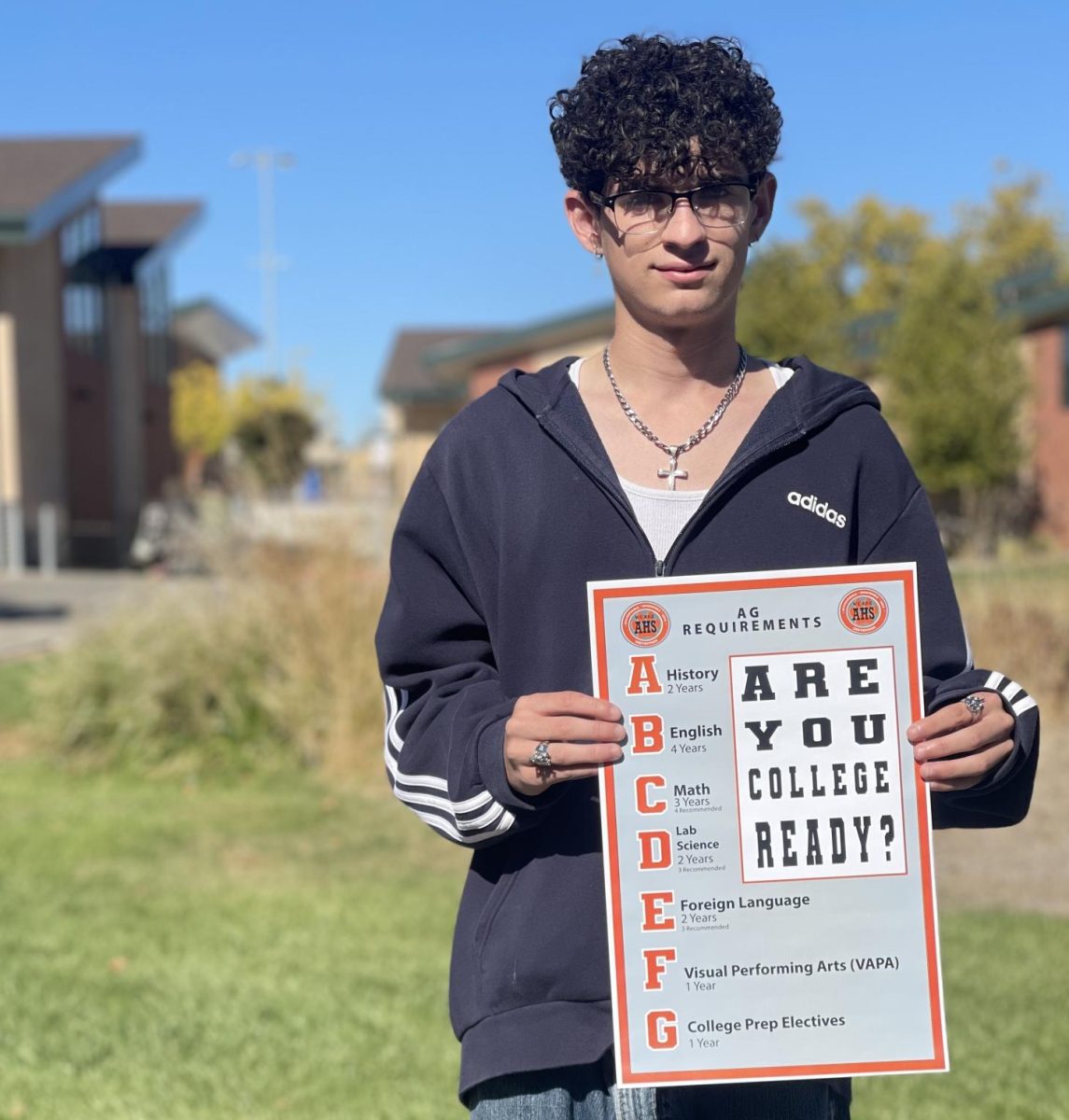For many students in California, the path to a UC four year college can feel overwhelming, especially when it comes to understanding the admission requirements. One important consideration is whether you’re meeting the A-G requirements. These are not the same as high school graduation requirements, but they are essential for getting into a four-year college. While there is some overlap between the two, it’s important to understand that the A-G requirements focus specifically on college admissions.
In this story, we’ll focus on A-G, but we will address high school graduation requirements in a future article. When we asked AHS students about their understanding of the A-G requirements, we found that many were unaware of what they actually entail. If it weren’t for programs like the Cuesta Promise, many students might find themselves without a clear path after high school simply because they didn’t complete the right courses. Understanding the A-G requirements is key to making sure you’re on track for college admission.
What Are A-G Requirements?
The A-G requirements are a series of 15 high school courses that students must complete with a grade of C or better to be eligible for admission to UC and CSU. These requirements are divided into seven categories, labeled A through G, which correspond to different subject areas.

A-G Subject Categories
A: History/Social Science (2 years)
– Students must complete two years of history/social science, including one year of U.S. history and one year of social science.
B: English (4 years)
– This requirement includes four years of college-preparatory English, emphasizing reading comprehension, composition, and literature.
C: Mathematics (3 years)
– Students will need three years of mathematics, including Algebra I, Geometry, and Algebra II. More advanced courses, such as pre-calculus, are recommended. 4 years recommended
D: Laboratory Science (2 years)
– Two years of laboratory science are required, with at least one year from the fields of biology, chemistry, or physics. 3 years is recommended.
E: Language Other Than English (2 years)
– Students must study a language other than English for at least two years, ideally the same language. 3 year recommended.
F: Visual and Performing Arts (1 year)
– One year of visual or performing arts is required, which can include disciplines like music, dance, theater, or visual arts.
G: College-Preparatory Elective (1 year)
– This requirement includes one year of an additional college-preparatory elective chosen from the subjects above or other advanced subjects.
Here are some tips for meeting the A-G Requirements
- First of all, always stay in contact with your counselor. It’s essential to plan your high school course schedule early and consult with your academic advisor to ensure you meet all requirements.
- Second, review your high school transcript yearly if not regularly to track your progress toward fulfilling the A-G requirements, don’t get caught off guard.
- Third, never hesitate to seek support from your counselor, while they may be relatively busy, they are always ready and eager to help you find the class fees you need.
Here are some other ideas to consider for the community
Another interesting fact about the A-G requirements is how the number of students who complete them by 12 grade impacts the ratings of California schools. When students graduate and meet these requirements, it positively affects the school’s state rating. This rating then suggests what schools may or may not be adequately preparing students for college or careers.
For those of you taking or considering Advanced Placement (AP) or honors courses, It’s important to know that these classes have a greater impact on your A-G requirements than regular classes. AP and honors courses can strengthen your college applications by demonstrating academic rigor, and many colleges prioritize transcripts that include AP credits. However, it’s important for all prospective students—whether taking AP or regular classes—to complete their A-G requirements in order to be eligible for enrollment at most four-year universities.
If you don’t meet these requirements by the time you graduate high school you can get the equivalent of these met via a community college like Cuesta and apply to a 4 year college after that.
You can find more information on A-G Requirements from the California Department of Education Website
As you move between classes, be sure to look for the letter signs posted in each classroom. These signs will remind you of the work you’re doing and how it helps you fulfill your AG credit requirements for that particular course or activity.
















































